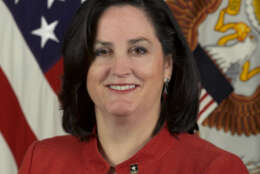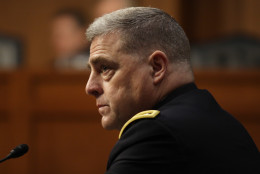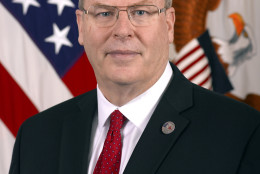Reporter's Notebook
-
Robert Silvers becomes the first permanent assistant secretary for cyber policy at DHS in about a year.
April 11, 2016 -
Assuming the Army completes its planned drawdown to 450,000 active duty soldiers by the end of next year, the service will own and operate 21 percent more real estate and facilities than it can conceivably put to productive military use.
April 11, 2016 -
The Defense Department is taking a serious look at overhauling its process for accrediting commercial cloud computing products as secure-enough for military use.
April 11, 2016 -
Gen. Mark Milley, the Army’s chief of staff, said his service will arrive at decisions within a matter of weeks on a new way forward for the Modular Handgun System, which has been in the works since 2011.
April 11, 2016 -
The departments of Labor and Energy are still working through their final plans to implement the Federal IT Acquisition Reform Act.
April 04, 2016 -
The space agency plans to evaluate and get feedback on Ames Research Center’s Gryphon X proposal to take a more proactive approach to finding and fixing critical infrastructure vulnerabilities.
April 04, 2016 -
The Homeland Security Department’s chief privacy officer is mandating mobile apps go through the vetting process known as the car wash before they can be deployed on the network.
April 04, 2016 -
Bob Welch served as the senior procurement executive for the departments of Commerce and Treasury during his 30-year federal career.
April 04, 2016 -
Vendors are submitting bids on the next set of tools under phase 2 of the continuous diagnostics and mitigation program while DHS is preparing for phase 3.
March 28, 2016 -
The Institute for Critical Infrastructure Technology (ICIT) is calling on NASA to unleash Gryphon X, a next-generation cybersecurity concept.
March 28, 2016 -
Anne Rung, the administrator in the Office of Federal Procurement Policy, said at the recent Acquisition Excellence conference that she’s working with the Chief Acquisition Officer’s Council to share some best practices to improve how agencies provide debriefings to unsuccessful vendors.
March 28, 2016 -
DHS promotes Danny Toler and brings on GSA veteran Emile Monett to work on the CDM program.
March 28, 2016 -
Reactions to the suggestion that federal CIOs don't need to be rock stars was met with a host of reactions, including that the success of the CIO mostly depends on how well they understand how the government works and how they adapt to the culture.
March 28, 2016 -
As of last week, all of the Defense Department components that fall under the direct control of the Office of the Secretary of Defense (OSD) are barred from hiring any new civilian employees.
March 28, 2016 -
Within the next month, the Navy expects to issue a request for proposals to support a new concept it’s calling the “Cloud Store.”
March 28, 2016












